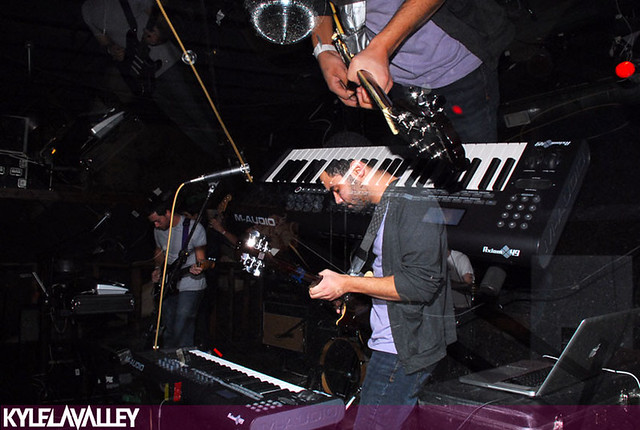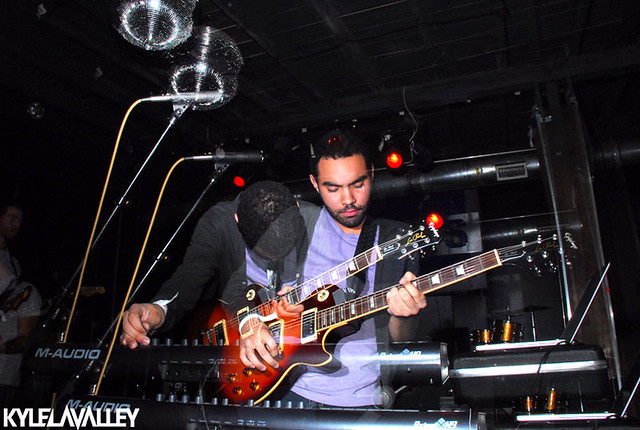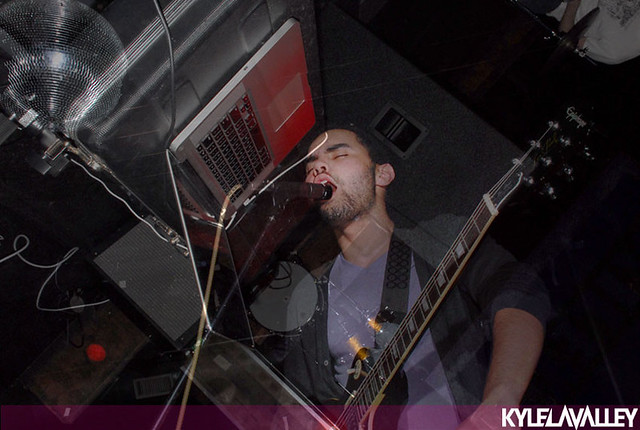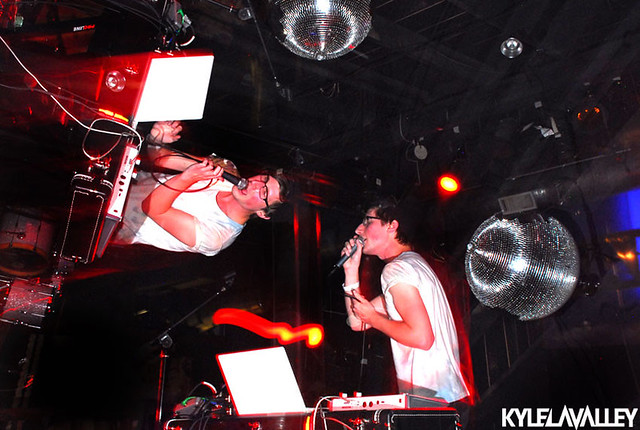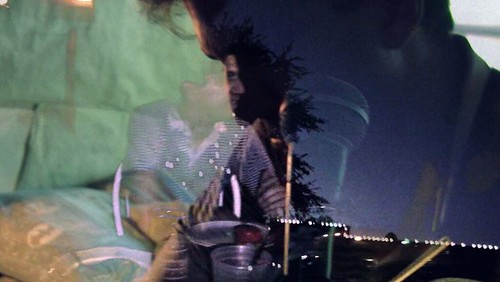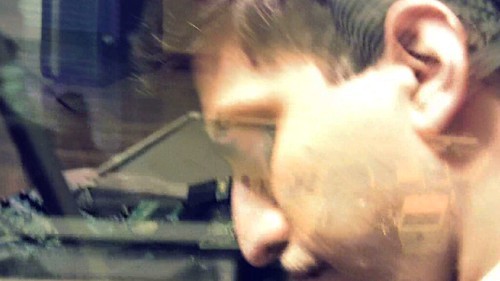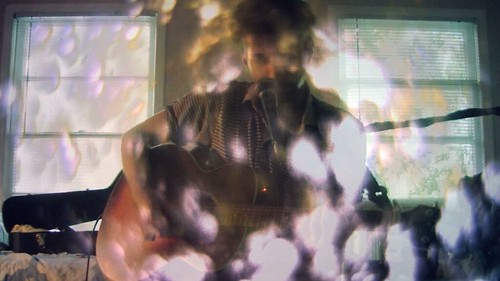Editor's Note:
This is the first of our monthly Ghosts of Denton Past column. In this column, we will look at different Denton bands of yore. If you have a specific old band that you'd like for us to cover, send us an email. Also, if you have a great story on any band that we have covered, please tell us in the comments!
Brutal Juice
It’s sometime in the fall of 1996. I’m a junior in high school in the middle of nowhere, halfway between Dallas and Waco. I’ve really only been listening to decent music for about two years; I was way into … And Justice for All coming into my freshman year, mostly on the recommendation of my best friend, who was way into Lars Ulrich at the time. I also briefly fooled myself into believing that big band music held some intrinsic value in anticipation of joining the school jazz ensemble. Beyond that, I was as interested in grunge and the burgeoning ‘alternative rock’ scene as anyone else in the ’90s, but I was only beginning to explore music at large.
Locally, my knowledge of area bands consisted of Pantera and the Toadies, who I only knew about thanks to sitting next to a faux-bisexual pothead skate rat in algebra who decorated his notebook with “Fuck the Toadies” stickers. They had just started to get some heat off of ‘Possum Kingdom’ on the radio, and before not too long, they were a big deal, even among people who didn’t abuse spray paint. I was invited by a friend who had an extra ticket to go see them in Dallas one night, and I was psyched like a mug-until we got there.
Being sixteen, going on seventeen, I was fully immersed in my awful antisocial/misanthropic phase, and was super bummed to arrive at the venue to see the collected student councils of the greater North Texas area, people who were only there because their parents owned lakefront property name-checked in a song. My spleen went into overdrive.
We arrived a little late, but just in time to see opener Brutal Juice take the stage, and I watched in a state of euphoria as they proceeded to hate-fuck this audience of shirt-tuckers for what seemed like an impossibly long set. Writhing and shrieking onstage, this was my first live taste of a truly dangerous band. Almost immediately after they finished and the house music came up, some intern from Interscope wove his way through the crowd of horrified children with a bag of cassette tapes and shoved one in my greedy little fist. It was a promo single of ‘Nationwide’ backed with ‘The Vulgarians’ aka ‘The Vaginals’. We went home after the show, I popped that tape into my stereo, and completely surrendered. Even at just two songs, it found its way into my regular car cassette rotation. If I ever gave you a ride in my ‘88 LeSabre, you listened to Brutal Juice.
Imagine, if you will, Denton twenty years ago. It bears little, if any resemblance to the city today. The universities were present, as well as the Pancho’s, but for the most part, that was it. If you got on Loop 288, you either wanted to go to Wal-Mart, or get drunk in a field. If you had any type of creative inclinations, restless energy, or simply had a low tolerance for boredom, your options were limited: make music, take drugs, or experiment with combining the two in varying quantities. From out of this pharmaceutical ennui came Brutal Juice.
Coalescing in and around the University of North Texas in 1991, the band took their name from an incredibly prescient Hertz car rental commercial featuring O.J. Simpson and Arnold Palmer. Hitting the ground running, the band began writing songs and honing their sound. Bassist Sam McCall recorded the earliest demos before eventually joining up full-time, combining with drummer Ben Burt to form a crazy tight, muscular rhythm unit. Guitarists Gordon Gibson and Ted Wood lashed from prog-laced arena punk riffs to spaced out lysergic solos. And Craig Welch scared the shit out of everyone within arm’s reach, taking equal time to scream lyrics full of sex and violence as well as smash beer bottles against his head and put lit cigarettes out on his tongue.
They quickly began documenting their perverse style of acid punk, releasing How Tasty Was My Little Timmy, followed by the Cannibal Holocaust and Black Moment of Panic singles, the latter put out by Alternative Tentacles. It’s on Black Moment of Panic that the first concrete signs of what was to come showed up. The A-side plays almost like a foreshadowing of where the band would eventually end up, with a heavily psychedelic front end bolstered by a chaotic and crushing bridge and coda. The B-side “Rock Town” is largely forgettable; a stiff mosh-funk tune contractually required of any band operating between 1989-1997.
Recorded at Emo’s in Austin in 1994, I Love the Way They Scream When They Die is essentially a live concert demo version of the band’s only proper full length. Most of the same songs appear on both releases, albeit in very different guises. Overall, the live album is naturally looser and more raw than the polished studio effort. It is obvious on the live album though, that the musicianship is already top-notch, and most of the puzzle pieces have already been placed.
In the wake of every band in America with access to a distortion pedal being signed by a major record label, Interscope Records released Mutilation Makes Identification Difficult in 1995. Originally conceived with the working title Everything’s Coming Up Toilets, the album was an uncompromising conglomeration of metal heaviness, punk riffs, pop vocal harmonies and general weirdness. Leading with the seasick lurch of “Kentucky Fuck Daddy,” all the way through to the best twenty minute Tool song Tool never wrote in “Whorehouse of Screams,” it manages the neat trick of sitting comfortably at the crossroads of noise rock and power pop, and remains an unfortunate casualty of a saturated alternative rock market.
Brutal Juice toured relentlessly throughout the mid-’90s. Their final record, released with Man’s Ruin, was the All-American City single. Both a departure from the Mutilation album, and a totally logical endpoint to their music, “All-American City” is extremely psychedelic in comparison to the majority of other BJ songs, passing for straight-up hippie rock for the first minute until pedals and balls both get stomped at the chorus and atonal squeals begin issuing forth from the guitars. The B-side, “Bound for Glory,” is cast more in the classic Brutal Juice mold. A thrashy, melodic kiss-off, it’s the kind of song that you hum as your mugshot is taken.
Brutal Juice dissolved in 1997, though reunion shows have been plentiful and semi-regular in the years since. Gibson and Burt formed the Tommorrowpeople, which continued the more pop-oriented psychedelic sounds BJ was beginning to explore. Ted Wood went on to become a member of Hand of Onan, and later Magnum Octopus and with Welch, was a member of the Banes. Welch went on to be a member of International Sparkdome as well as the Fabulous Badasses, and currently performs as part of electro/hip-hop outfit NEEKS. McCall continues to produce and record other bands.
If you have any good Brutal Juice stories, please tell us in the comments!
Brutal Juice:
Ben Burt - drums
Gordon Gibson - lead vocals, guitar
Sam McCall - bass, vocals
Craig Welch - lead vocals, guitar
Ted Wood - guitar, vocals
Fry St. Fair 93
reunion show @ Dan’s:
-David Willerton


